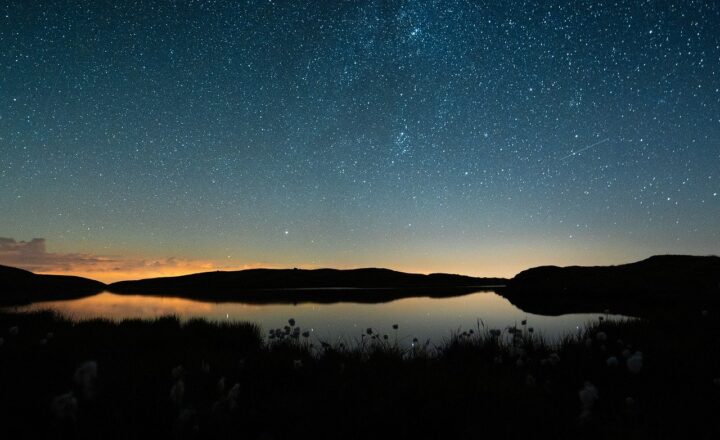What Would It Be Like to Live on an Earth-Like Planet Millions of Miles Away?
November 12, 2024

Imagine standing on the surface of a distant Earth-like planet, millions of miles away from our own cherished home. What would you see, hear, and feel? In this article, we will explore various aspects of living on an alien planet that possesses conditions similar to Earth—such as breathable air, liquid water, and a hospitable climate. From the excitement of exploration to the challenges of adaptation, let us delve into the imaginative potential of life on another world.
1. The Environment: A Glimpse of an Earth-Like World
To begin our journey, imagine stepping onto a planet orbiting a star within the habitable zone, where temperatures are just right for liquid water to exist. The landscape might be dotted with sweeping plains, towering mountains, lush forests, and vast oceans. You would be greeted by a sky that could range from deep blue during the day to pinkish-orange hues at sunset, much like the stunning vistas we have on Earth.
Weather and Climate
The weather might fluctuate, with gentle rains nurturing the environment and allowing vibrant flora to thrive. The seasons could change in a rhythm echoed back home, with warm summers and cooler winters that could invigorate life in a complex ecosystem. The balance of water bodies, land, and atmospheric conditions would contribute to the survival of life forms, possibly resembling those we cherish on Earth.
2. The Flora and Fauna: Discovering Alien Life
With hospitable conditions, the planet would likely cultivate a diverse array of plant and animal life. Imagine forests filled with towering trees that sway in the breeze, colorful flowers that bloom under the warm sunlight, and unique creatures that roam the land. The biodiversity may be incredible, and as explorers, we could document unique species, some resembling terrestrial life, while others may be entirely alien in form.
Symbiosis and Interdependence
Life on this new planet might follow a structure of interdependence similar to what we see on Earth. Predators, herbivores, and plants would each play crucial roles in the ecological web. We could witness extraordinary adaptations tailored to the planet’s environment, fostering a delightful connection between species and ecosystems.
3. Daily Life: The Human Experience on Another World
Assuming we establish a human presence on this exoplanet, the daily experience would be a blend of adventure and challenges. Settlements might be designed to suit the local conditions, perhaps utilizing local materials for construction while incorporating familiar elements from home—think of habitats crafted sustainably from the planet’s flora.
Lifestyle Adjustments
Living on another world would necessitate adjustments. Food sources might be entirely different, so we would likely need to rely on local agriculture or import Earth-based crops for cultivation. Traditional activities like cooking, entertainment, and recreation would adapt to the available resources and the unique cultural context that could spring up amongst early settlers.
4. The Science: Exploring the Unknown
On an alien planet, scientific exploration would take center stage. At first, we would focus on studying the atmosphere, geology, and potential resources to ensure a sustainable human presence. The pursuit of knowledge would not only satisfy our curiosity but also foster innovations necessary to survive and thrive.
Research Opportunities
Extraterrestrial research would encompass a wide range of fields, from biology to geology. Imagine discovering microbial life in a soil sample or analyzing crystal formations in a distant mountain range. Each finding might offer insights into Earth’s history and the origins of life across the universe, expanding our understanding of biology and cosmology.
5. The Community: Building Connections
Unity and collaboration would play an integral role in the success of human settlements. As we adjust to this transformed environment, communal activities would arise as ways to bond and build relationships with fellow settlers, inspired by Earthly traditions and new experiences.
Cultures and Traditions
Diversity within our community would blossom, giving rise to unique cultural expressions, languages, and customs formed from the shared experience of living on a new planet. Festivals, events, and daily rituals that integrate from both Earthly heritage and the novel context could result in a vibrant tapestry of life, encapsulating what it means to be human.
6. The Challenges: Overcoming Obstacles
While the allure of life on another Earth-like planet is enticing, it wouldn’t be without challenges. The psychological impact of isolation from Earth, the potential of unforeseen dangers lurking within the alien ecosystems, and working collaboratively to address crises would pose a test of human resilience.
Survival Strategies
Navigating these challenges would require careful planning and innovation. Long-term survival strategies would depend on adapting Earth-based technology to perform effectively in the alien environment. Solutions would include establishing reliable food sources, building resilient habitats, and creating systems for communication and support between settlers and Earth.
7. Reflections: The Future of Humanity
Living on an Earth-like planet millions of miles away emits a wave of hope and excitement about humanity’s future among the stars. Every step taken to explore and inhabit other worlds reshapes our perspective of life and brings us closer to answering profound questions about existence.
Prospects for Human Evolution
As we evolve to fit into this unique landscape, our culture, biology, and identity may reflect the traits we adopt from living on a new planet. The prospect of human evolution and adaptation would not merely signify survival but also highlight our shared journey in exploring the cosmos.
Conclusion: A Journey Beyond
As we conclude our exploration, we return to the imaginative picture of life on an Earth-like planet millions of miles away. It represents the epitome of hope, courage, and persistence of human aspiration. What would it be like? It embodies the possibility of new beginnings, where we create not only a new home but also a deeper understanding of our place in the universe.
Every venture into the unknown is a chance to grow, nurture our shared humanity, and expand the horizons of our existence—filled with wonder, challenges, and unbounded horizons awaiting our discovery.







